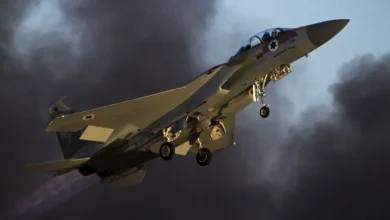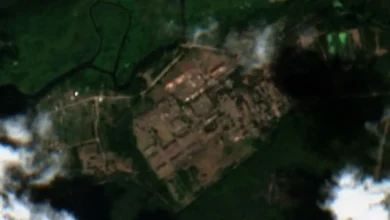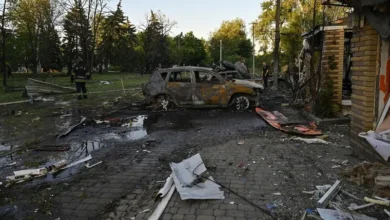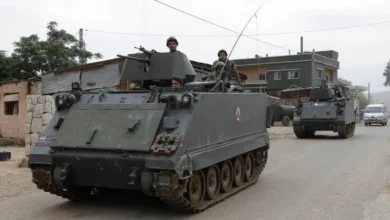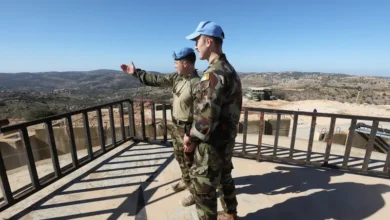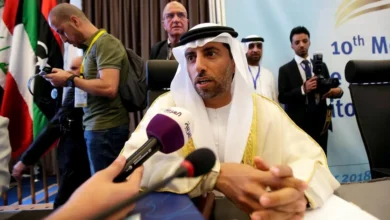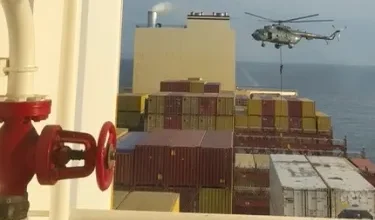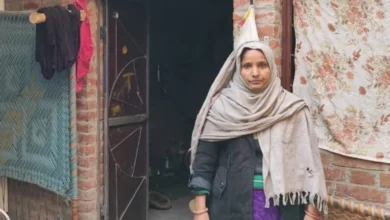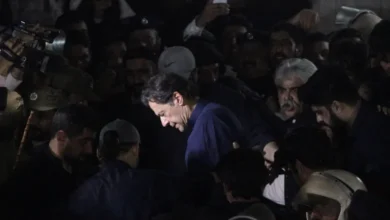Three brothers in the West Bank, kept apart by Israel’s war
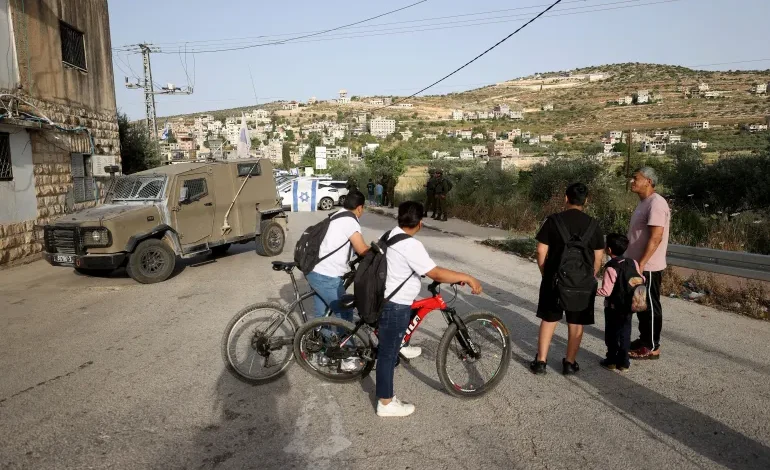
This is the tale of three brothers; Ayman, Yamen and Wajid. Yamen and I (Ayman, the author of this piece) are one year apart, 37 (him) and 38 (me), while Wajid is the “baby” at 35. All three of us work between the cities of Nablus and Ramallah and our home village, al-Lubban Ash-Sharqiya, located halfway between the two cities.
Now, my two brothers and I are each stuck in one of these three places with no way of reaching each other. Since October 7, the West Bank has been subjected to unprecedented military measures by Israeli forces. The only time such stringent measures have been seen before was perhaps during the first days of June 1967, the start of the Israeli occupation.
Stringent curfews and clampdown measures implemented by armed settlers and Israeli forces on all cities, towns and camps in the West Bank have completely cut areas off from each other. Israeli forces have erected new military checkpoints and closed entrances and roads using iron gates and earth mounds. Meanwhile, Israeli settlers have ramped up harassment and attacks on Palestinian residents every day, throwing rocks and stones at Palestinian vehicles and shooting bullets at civilians who dare to leave their houses and step into their streets or fields – especially difficult during the olive season, which starts each year at the beginning of October and lasts until the end of November.
Our home village of al-Lubban Ash-Sharqiya is 21km (13 miles) south of Nablus and 27km north of Ramallah. Over the past two months, it has been closed off on three sides. The road accessing it from the east – the main one – is closed off with an iron gate, blocks of cement and mounds of dirt, and the road has been dug with trenches. The roads to the north and south are also filled with trenches which stretch for 2km from the outskirts of the village. Vehicles cannot cross. Only one road remains, leading to the city of Salfit in the central West Bank.
Wajid – in Ramallah
My youngest brother, Wajid, works as a photojournalist for the Palestinian Ministry of Information.
He tells me: “The roads are very, very difficult around Ramallah. Every time I head out to check the status of barriers and closures, they are bad. One road may be passable but it is long and winding and passes through many villages before you can get to our village.
“Since the beginning of the war, I have seen the family only once, due to the difficult road conditions. Getting out of the city would require a long detour and the route is interspersed with Israeli checkpoints. The family communicates with me regularly. Every day to check in, my mother calls at night and asks me if I have eaten and if the room is warm. She tells me every time to take care of myself and not go out too much.”
Things were not easy for people in the West Bank before October 7, but they have become many times worse since then. “Here in Ramallah, where I have remained since the beginning of the war, the city is subjected every night to Israeli raids, especially after midnight and lasting until noon.
“Every night, the sound of gunfire, bombs and gas bombs can be heard. The sun rises and life begins all over again. It is very noticeable how few people are moving around because of the closures and tight barriers around the city and the sieges of villages in all areas of the West Bank.
There are sometimes protest marches after afternoon and sunset prayers, but at half past midnight, the raids begin.
“Ramallah was the most active and lively city in Palestine,” he says. “Now it is nothing! This city that used to stay awake until dawn now closes the doors of its homes and shops shortly after sunset. Some people gather in the evening at al-Manara roundabout, where they come from all neighbourhoods to demonstrate. In the centre of the city at night the numbers grow and marchers roam the streets – mostly dominated by youths chanting for Gaza, shouting anti-occupation slogans and declaring their support for the resistance. They are not just sympathisers! They are part of this war.
Lots of people have been arrested for showing their support for the resistance, he tells me.
“The arrests have focused on everyone who participates in supporting the resistance, especially those who publish anything on social media sites,” Wajid says.
“I still believe Ramallah is safer than al-Lubban because of the permanent presence of settlers and the army,” he says. Life is hard, however. “Salaries have been delayed and the already high prices have risen even more. While I have been stuck in Ramallah, I know the family has run out of some things, but because of the state of the roads, I cannot return to our home in the village to provide them.


